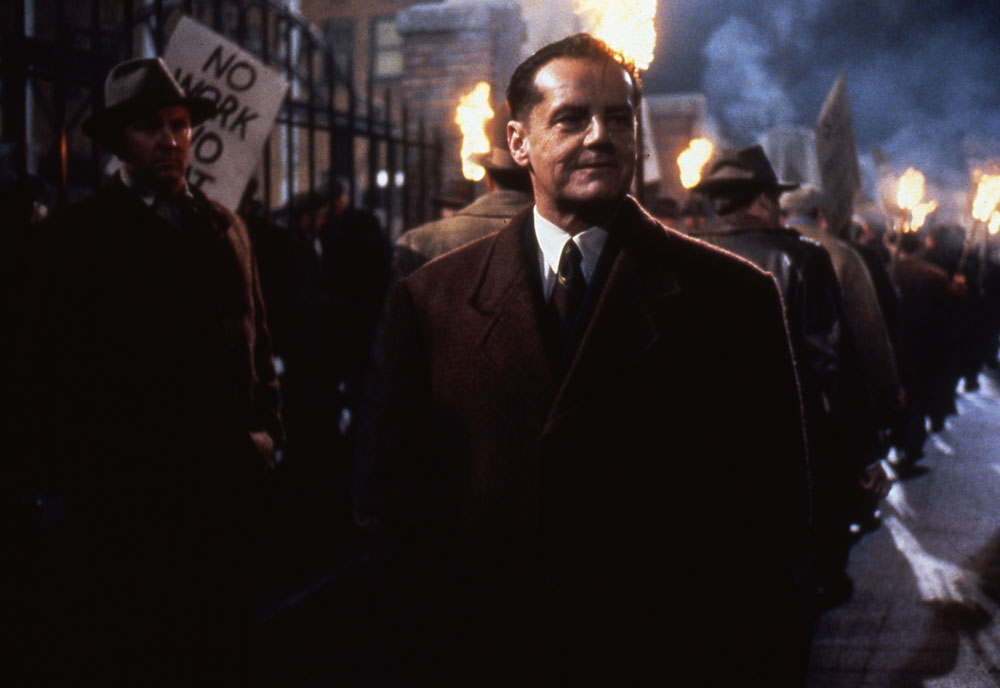
Our next handful of Pittsburgh movies feature auto workers, garbage collectors, doctors, teachers, teamsters, and a folk-singing politician, all available in our DVD collection.
Gung Ho (DVD-1246)
Michael Keaton, Gedde Watanabe, John Turturro, George Wendt; directed by Ron Howard (1986)
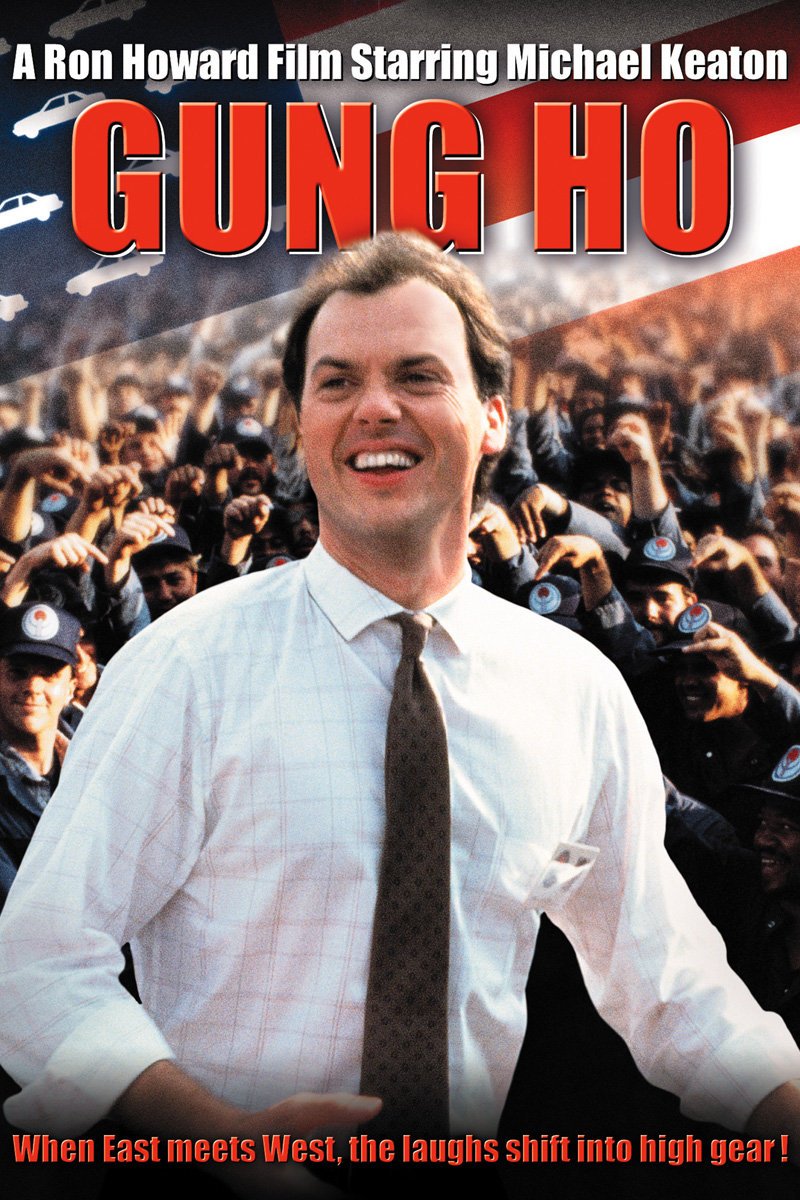 (Rated PG-13) An auto plant in fictional Hadleyville, PA closes, and the supervisor (hometown boy Michael Keaton) goes to Tokyo to try to convince Assan Motors to reopen the plant. The movie is a funny comparison of American and Japanese work styles and lifestyles – although some of the humor is on the edge of being insensitive. One of the factory locations was West Homestead and we see what looks like Carson Street in the South Side. The Japanese managers and Michael Keaton swim in the Beaver River in Bridgewater, PA – brave souls. Local actor Linda Carola gets one of the funniest lines, and Keaton calls someone that true Pittsburgh epithet, a “jagoff.”
(Rated PG-13) An auto plant in fictional Hadleyville, PA closes, and the supervisor (hometown boy Michael Keaton) goes to Tokyo to try to convince Assan Motors to reopen the plant. The movie is a funny comparison of American and Japanese work styles and lifestyles – although some of the humor is on the edge of being insensitive. One of the factory locations was West Homestead and we see what looks like Carson Street in the South Side. The Japanese managers and Michael Keaton swim in the Beaver River in Bridgewater, PA – brave souls. Local actor Linda Carola gets one of the funniest lines, and Keaton calls someone that true Pittsburgh epithet, a “jagoff.”
Dominick and Eugene (DVD-6592)
Tom Hulce, Ray Liotta, Jamie Lee Curtis (1988)
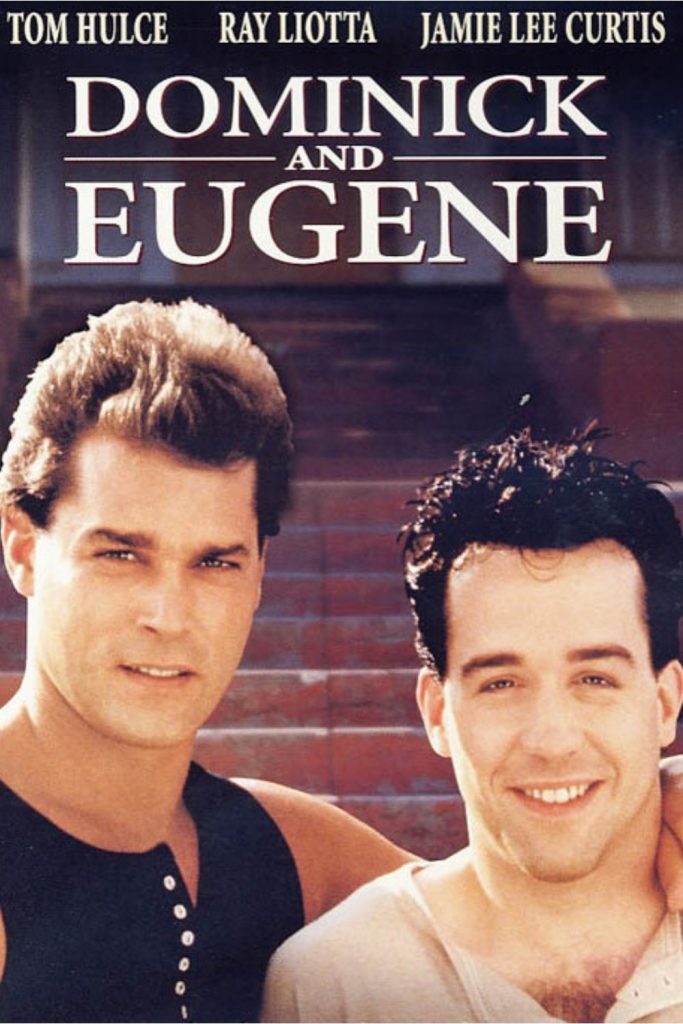 (Rated PG-13) Tom Hulce is heartbreaking as Dominick, brain-damaged from a childhood accident but able to work as a garbage man to help his brother Eugene (Liotta) through medical school. I don’t think I’ve seen a more touching portrayal of brotherly affection, or the frustrations of caretaking. Most of their South Side neighbors are kind – one motherly woman (with a babushka, sweeping her sidewalk!) calls him “God’s boy.” But Dominick’s openness leaves him vulnerable. Eugene’s been accepted at Stanford, and he tries to coach his brother on independence. “You’re not able to think as fast as some. But you’re able to think. You have to believe in your strength.” Jamie Lee Curtis as Eugene’s girlfriend provides a more privileged contrast to the brothers. Dominick’s co-worker, all smarm and innuendo, provides another. He casually drops the n-word and Dominick corrects him, “you shouldn’t say that.” In church, Dominick prays “Don’t let anybody hurt anybody.”
(Rated PG-13) Tom Hulce is heartbreaking as Dominick, brain-damaged from a childhood accident but able to work as a garbage man to help his brother Eugene (Liotta) through medical school. I don’t think I’ve seen a more touching portrayal of brotherly affection, or the frustrations of caretaking. Most of their South Side neighbors are kind – one motherly woman (with a babushka, sweeping her sidewalk!) calls him “God’s boy.” But Dominick’s openness leaves him vulnerable. Eugene’s been accepted at Stanford, and he tries to coach his brother on independence. “You’re not able to think as fast as some. But you’re able to think. You have to believe in your strength.” Jamie Lee Curtis as Eugene’s girlfriend provides a more privileged contrast to the brothers. Dominick’s co-worker, all smarm and innuendo, provides another. He casually drops the n-word and Dominick corrects him, “you shouldn’t say that.” In church, Dominick prays “Don’t let anybody hurt anybody.”
Through a crisis, Dominick intervenes to save a life, and learns the truth about his own childhood.The setting is South Side before it became trendy, before “the slopes” and “the flats.” The brothers live in Bedford Square, off Carson Street; there are many beautiful, vertigo-inducing shots of steep, narrow South Side streets, stairways and hillside homes with two floors in front, three in back. And the final credits will have you dancing.
Waterland (DVD-8123)
Jeremy Irons, Sinead Cusack, Ethan Hawke; directed by Stephen Gyllenhaal, father of Jake and Maggie; this was Maggie’s film debut (1992)
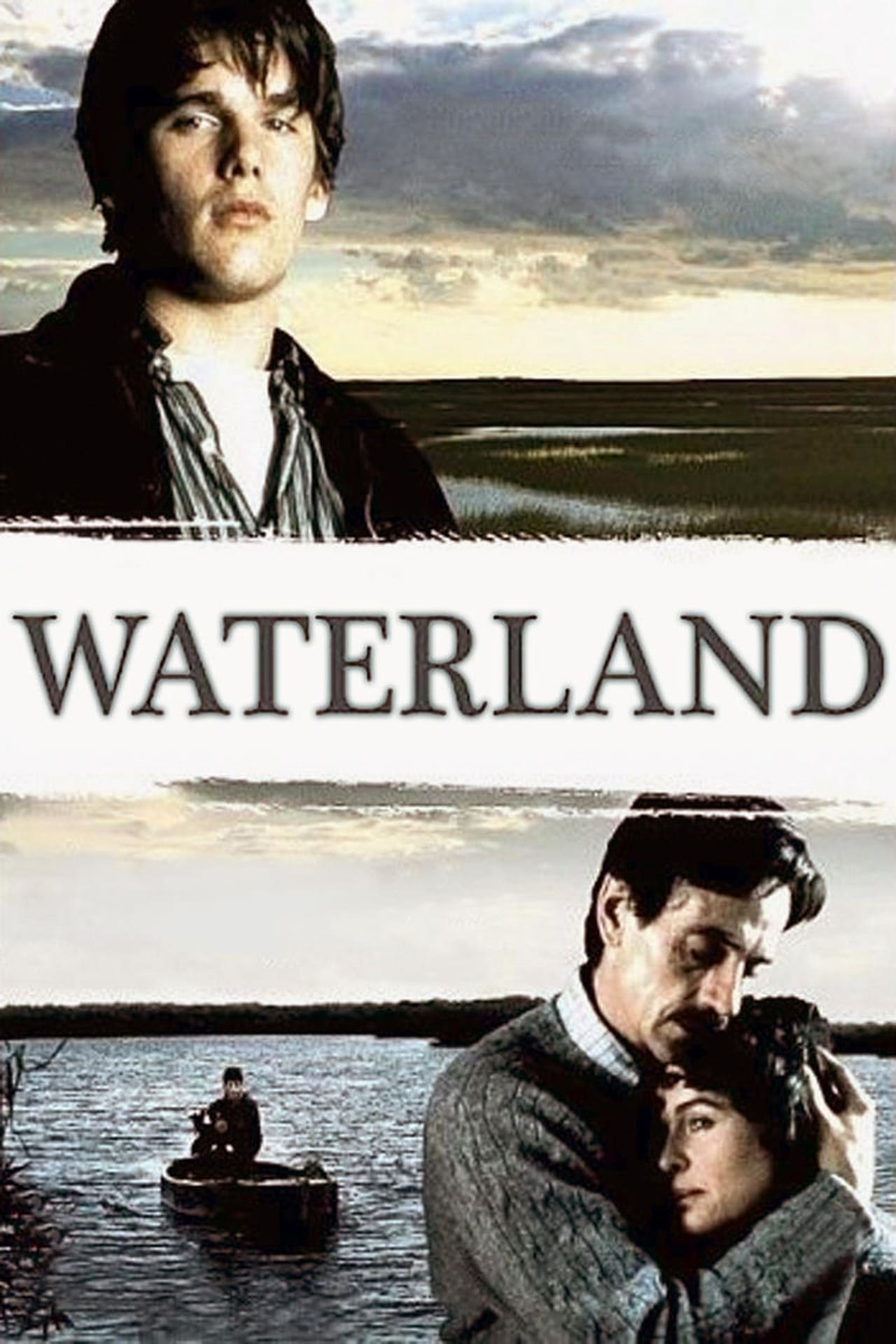 (Rated R) Tom Crick (Irons), a high school history teacher, tries to connect with his students (including a young Ethan Hawke) by telling them stories about his young adulthood in the Fens district in England. In real life, any teacher sharing these kinds of sexual stories would be immediately removed. Other teachers know about Crick, but only one questions him, and only on the importance of teaching history. The film takes a confusing dive into magical realism when Crick takes his students back in time to his grandfather’s life. In a drunken crowd, one student asks, “Can he see us?” Crick answers, “Some of them can’t see anything.”
(Rated R) Tom Crick (Irons), a high school history teacher, tries to connect with his students (including a young Ethan Hawke) by telling them stories about his young adulthood in the Fens district in England. In real life, any teacher sharing these kinds of sexual stories would be immediately removed. Other teachers know about Crick, but only one questions him, and only on the importance of teaching history. The film takes a confusing dive into magical realism when Crick takes his students back in time to his grandfather’s life. In a drunken crowd, one student asks, “Can he see us?” Crick answers, “Some of them can’t see anything.”
Meanwhile, Crick’s wife Mary (Cusack) lives with emotional problems that we gradually understand through flashbacks. In fact, if you need a glaring example of the male gaze, watch this movie. In one scene, young Crick, unable to bear Mary’s suffering, runs away, falls to the ground and pounds muddy water. All I could think was “You won’t be there for her when she needs you.” Which is true throughout.
The movie opens with the title “Pittsburgh, 1974” and shows the city skyline, then Crick and his wife sitting by the Point. One of the goofs: Crick takes his student (Hawke) to a bar, and the bartender asks, “You sure he’s 18?” even though Pennsylvania’s drinking age is 21. There are interesting discussions about why we should study history, and how history flows like water. There’s also a theme about shaping your own history, especially at the end when Crick follows Mary across the misty Fens. Still, I didn’t really want him to catch up with her.
Bob Roberts (DVD-414)
Tim Robbins, Giancarlo Esposito, Alan Rickman (1992)
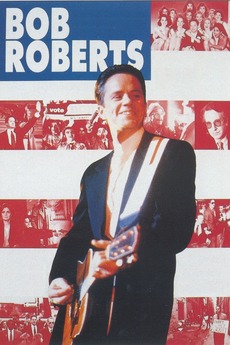 (Rated R) You could either view this as a prescient mockumentary, or nothing compared to what we’ve been through. Robbins plays a right-wing populist folk singer running for a senate seat in Pennsylvania. His performances and his lyrics (“It’s a crime to say a little prayer, God’s no longer wanted here”) win fans as his opposition, Sen. Brickley Paiste (Gore Vidal) falls behind. One commentator observes, “he’s like Nixon but shrewder, he’s the rebel conservative.” Roberts runs an anti-drug organization called Broken Dove as a front for dubious operations, and he’s dogged by an investigative reporter (Esposito) who seeks to expose him. Paiste says “I haven’t any idea who he is. I don’t think I’m supposed to. He’s a master of pushing racist and sexist buttons.” Then we cut to Roberts singing “I’m a bleeding heart. Let’s give money away to lazy people in the slums.” (Tim Robbins refused to release the soundtrack because he didn’t want the lyrics taken out of context.) One of the campaign staff even says, “Make America great again for Christian people.”
(Rated R) You could either view this as a prescient mockumentary, or nothing compared to what we’ve been through. Robbins plays a right-wing populist folk singer running for a senate seat in Pennsylvania. His performances and his lyrics (“It’s a crime to say a little prayer, God’s no longer wanted here”) win fans as his opposition, Sen. Brickley Paiste (Gore Vidal) falls behind. One commentator observes, “he’s like Nixon but shrewder, he’s the rebel conservative.” Roberts runs an anti-drug organization called Broken Dove as a front for dubious operations, and he’s dogged by an investigative reporter (Esposito) who seeks to expose him. Paiste says “I haven’t any idea who he is. I don’t think I’m supposed to. He’s a master of pushing racist and sexist buttons.” Then we cut to Roberts singing “I’m a bleeding heart. Let’s give money away to lazy people in the slums.” (Tim Robbins refused to release the soundtrack because he didn’t want the lyrics taken out of context.) One of the campaign staff even says, “Make America great again for Christian people.”
It’s fun to see Jack Black in his screen debut, and Susan Sarandon, Helen Hunt, David Strathairn, James Spader and John Cusack in little roles. There are bits of great political satire, like a quick shot of Pennsylvania’s gerrymandered voting districts. Locations included Penn State, Mt. Lebanon High School, Soldiers and Sailors Memorial Hall, and downtown Pittsburgh - though, as we’ve seen, this story could and did happen everywhere.
Hoffa (DVD-7002)
Jack Nicholson, Danny DeVito, Armand Assante (1992)
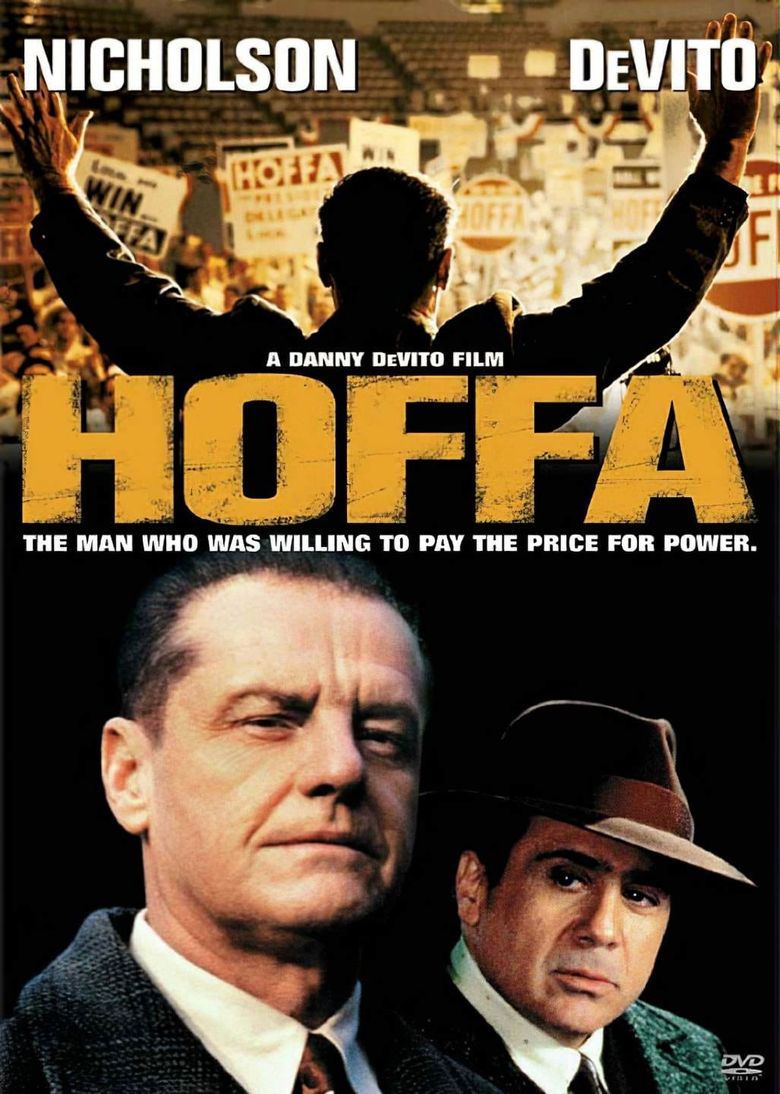 (Rated R) We first see Hoffa (Nicholson) persuading Bobby Ciaro (DeVito) to join the teamsters’ union, and Ciaro becomes Hoffa’s friend and associate. The story is told mostly through Ciaro’s eyes and in flashbacks as they wait for a meeting at a roadside diner. David Newman’s score contains enough heroic trumpets and French horns to bias us towards Hoffa as he organizes a strike and fights for the union, even though he makes deals with the mob. According to IMDB.com, David Mamet’s script uses the f-word and various forms of it 153 times. There are many shots of the Strip District, Mellon Institute, and the famous downtown Parkway “bathtub.”
(Rated R) We first see Hoffa (Nicholson) persuading Bobby Ciaro (DeVito) to join the teamsters’ union, and Ciaro becomes Hoffa’s friend and associate. The story is told mostly through Ciaro’s eyes and in flashbacks as they wait for a meeting at a roadside diner. David Newman’s score contains enough heroic trumpets and French horns to bias us towards Hoffa as he organizes a strike and fights for the union, even though he makes deals with the mob. According to IMDB.com, David Mamet’s script uses the f-word and various forms of it 153 times. There are many shots of the Strip District, Mellon Institute, and the famous downtown Parkway “bathtub.”
According to Danny DeVito, his young son was on the set when they shot the scene in which Hoffa rants about getting back control of the union. His tirade included the line “I’m gonna do what I gotta do!” For months afterward whenever DeVito asked his son to do something, his son would imitate Nicholson and say “Dad … I’m gonna do what I gotta do!” Moral of this story: never let your child watch this movie.
Reviewed by Jan Hardy, Library Specialist
